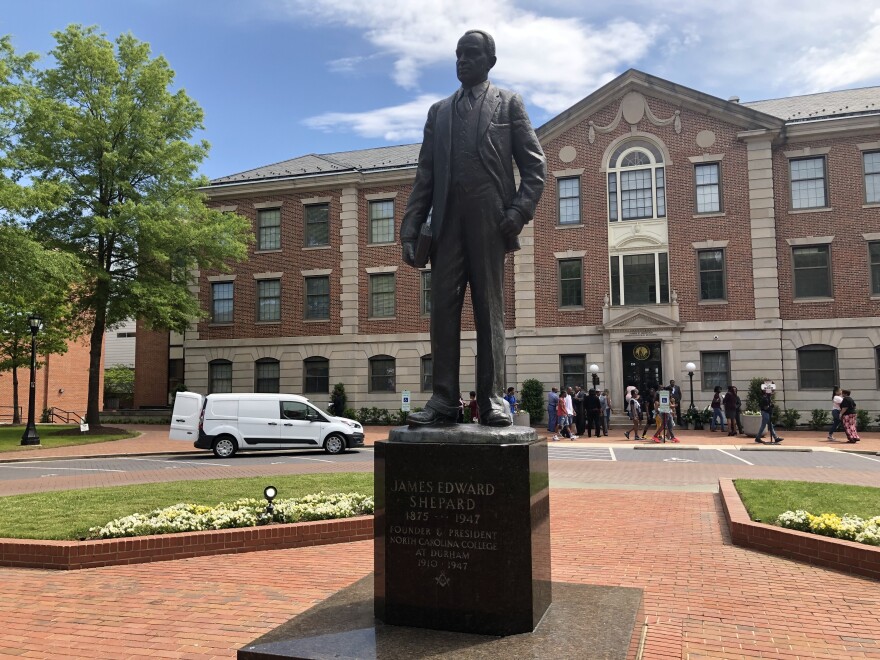A well-known African American neighborhood in Durham has been added to the National Register of Historic Places. The College Heights Historic District makes up 12 city blocks in southeast Durham. One reason for its name – the neighborhood is bordered by North Carolina Central University – a historically black institution.
April Johnson is Executive Director of Preservation Durham. She says College Heights was mainly made up of African American professionals.
“A lot of the residents in College Heights were professors. But they weren’t just professors, they were teachers at the black high schools at the time. They were professionals, lawyers, doctors and such," said Johnson.
Records show most of the first residents of College Heights worked at NCCU, North Carolina Mutual Life Insurance Company and Durham Public Schools.
The first homes in this area were built in the early 1900s, specifically around 1910. That was the same year NCCU was founded by Dr. James E. Shepard. The application for the National Register says, "the school and the neighborhood grew together." The historic designation includes more than 150 properties constructed between 1925 and 1966.

College Heights is the second African American neighborhood in Durham to recieve a national designation. The Stokesdale Historic District was named in 2010. That neighborhood is north of College Heights along Fayetteville Street, and includes the Hayti community and Lincoln Community Health Center, formerly Lincoln Hospital, the historic African American hospital.
Like many southern cities, there is a clear history of housing segregation that remains today. But as more prosperous cities like Durham grow, housing stock near city centers has become a hot commodity.
Some residents have been against the College Heights historic designation, fearing it will speed up gentrification. Johnson says she doesn't think that will be a major issue with this historic designation.
"The city is experiencing massive growth and people are looking for homes to renovate," said Johnson. "The search for cheaper property was already well underway and East Durham happens to be mostly minority."
John Greene moved to Durham from Philadelphia in 1974, and settled in College Heights.
"It's quiet and I like my neighbors," said Greene.
The retired math professor lives on Pekoe Avenue. In retirement, he has purchased several other homes in the area. Greene says he welcomes the historic designation but also worries about gentrification. He says he also worries that as the university grows, more homes in his neighborhood will be demolished.
"I hope it [the historic designation] slows down NCCU from encroaching on the neighborhood," said Greene.

College Heights met the criterion for a historic distict because of its African American heritage and social history, community planning and development and for its architecture. The neighborhood extends south from Lawson Street, along Fayetteville Street, including Formosa, Pekoe, Masondale Avenues, Duncan, Nelson, Cecil, Otis, Duncan and Concord Streets.










